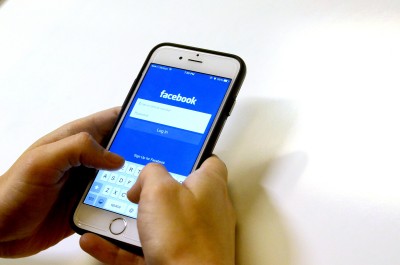
Large academic studies that rely on data gathered from social media may not be the most accurate way to understand human behavior, according to a study by two researchers from McGill University and Carnegie Mellon Universities.
Derek Ruth and Jürgen Pfeffer’s report was published Friday in Science, a journal run by The American Association for the Advancement of Science. The researchers concluded that social media can misrepresent societal behavior because not all people act the same way online and in person.
“Powerful computational resources combined with the availability of massive social media data sets has given rise to a growing body of work that uses a combination of machine learning, natural language processing, network analysis and statistics for the measurement of population structure and human behavior at unprecedented scale,” the study stated.
In a Thursday press release, which announced the findings of the study, McGill said social media analysts often overlook the different demographics of various social media sites, the possible filtering of public data streams and the presence of online spammers.
“Researchers often report results for groups of easy-to-classify users, topics and events, making new methods seem more accurate than they actually are,” McGill said in the press release. “For instance, efforts to infer political orientation of Twitter users achieve barely 65 percent accuracy for typical users – even though studies (focusing on politically active users) have claimed 90 percent accuracy.”
Additionally, because many social media platforms are designed to enhance interaction between people, the study stated it may be hard to distinguish if that behavior is entirely realistic or a result of the platform design.
Several students said people behave differently on social media compared to how they are in real life, due to the protection of a computer screen.
Chris Zoppo, a freshman in Boston University’s College of Arts and Sciences, said studies should not use social media as a measure of human behavior.
“Unless you’re conducting a study designed to show disparity between people on social media and in real life, you shouldn’t base studies off of social media,” he said. “People are very different from who they are online and in real life.”
College of General Studies sophomore Daisy Ruiz said social media can sometimes portray people as their real selves, but there is still a noticeable difference between interaction on social media and in person.
“It’s easier to say something online because you’re just typing it and not really saying it to other people,” she said. “If you say something controversial online, it’s not the same in person because people won’t confront you and there’s no pressure. It’s easier to say things online in that sense.”
Hillary Caplan, a School of Management senior, said people tend to use social media as an excuse to say things they wouldn’t normally say in real life.
“Some people are very transparent. I kind of pride myself on the fact that I’m very outgoing on social media and I’m not really afraid to talk to anyone,” she said. “However, I think other people kind of hide behind social media and act very outgoing and feel as though they can type away, but not have a conversation in person.”
Claire Ufongene, a freshman in Sargent College of Health and Rehabilitation Sciences, said social media presents people differently and allows them to have more freedom in expressing themselves.
“Some people are more confident on social media and they’re not talking to someone’s face so they feel like they can post what they want more freely,” she said. “A lot of people who don’t want to say something to someone’s face will post it on social media instead. I don’t think it’s accurate to make assumptions off of social media because there are a lot of different reasons why people post things.”























































































































